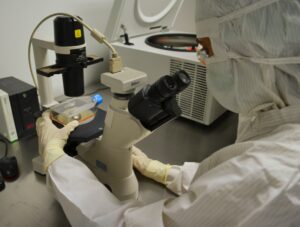 Soft tissue sarcomas (STSs) are rare mesechymal malignancies characterized by distintive molecular, histological and clinical features. Many STSs are considered as predominatly epigenetic diseases due to underlying chromatin deregulation. Discovery of deregulated functional antagonism between the chromatin remodeling BRG1/BRM-associated (BAFs) and the histone modifying Polycomb repressor complexes (PRCs) has provided novel actionable targets. In epithelioid sarcoma (ES), extracranial, extrarenal malignant rhabdoid tumors (eMRTs) and synovial sarcoma (SS), the total or partial loss of the BAF core subunit SMARCB1, driven by different alterations, is associated with PRC2 deregulation and dependency on its enzymatic subunit, EZH2. In these SMARCB1-deficient STSs, aberrant EZH2 expression and/or activity emerged as a druggable vulnerability. Although preclinical investigation supported EZH2 targeting as a promising therapeutic option, clinical studies demonstrated a variable response to EZH2 inhibitors. Actually, whereas the clinical benefit recorded in ES patients prompted the FDA approval of the EZH2 inhibitor tazemetostat, the modest and sporadic responses observed in eMRT and SS patients highlighted the need to deepen mechanistic as well as pharmacological investigations to improve drug effectiveness. In this article the current knowledge of different mechanisms driving SMARCB1 deficiency and EZH2 deregulation in ES, eMRT and SS along with preclinical and clinical studies of EZH2-targeting agents is summarized. Read the full article here.
Soft tissue sarcomas (STSs) are rare mesechymal malignancies characterized by distintive molecular, histological and clinical features. Many STSs are considered as predominatly epigenetic diseases due to underlying chromatin deregulation. Discovery of deregulated functional antagonism between the chromatin remodeling BRG1/BRM-associated (BAFs) and the histone modifying Polycomb repressor complexes (PRCs) has provided novel actionable targets. In epithelioid sarcoma (ES), extracranial, extrarenal malignant rhabdoid tumors (eMRTs) and synovial sarcoma (SS), the total or partial loss of the BAF core subunit SMARCB1, driven by different alterations, is associated with PRC2 deregulation and dependency on its enzymatic subunit, EZH2. In these SMARCB1-deficient STSs, aberrant EZH2 expression and/or activity emerged as a druggable vulnerability. Although preclinical investigation supported EZH2 targeting as a promising therapeutic option, clinical studies demonstrated a variable response to EZH2 inhibitors. Actually, whereas the clinical benefit recorded in ES patients prompted the FDA approval of the EZH2 inhibitor tazemetostat, the modest and sporadic responses observed in eMRT and SS patients highlighted the need to deepen mechanistic as well as pharmacological investigations to improve drug effectiveness. In this article the current knowledge of different mechanisms driving SMARCB1 deficiency and EZH2 deregulation in ES, eMRT and SS along with preclinical and clinical studies of EZH2-targeting agents is summarized. Read the full article here.
189
